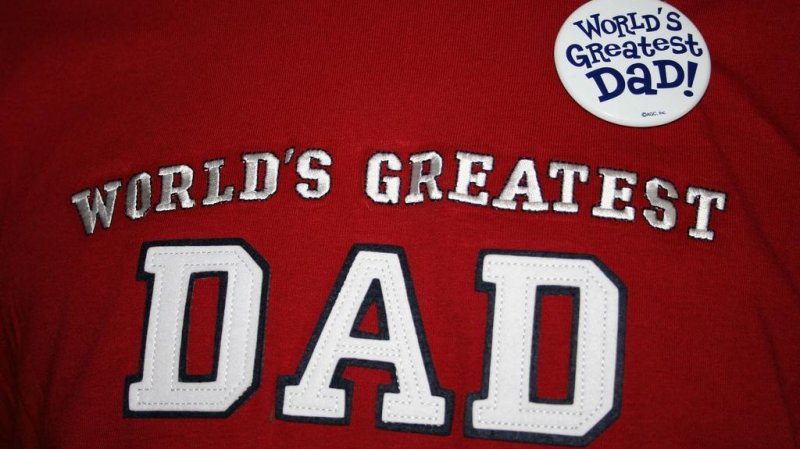The World's Greatest Dad. (CC/skpy)
Scientists at Emory University have found that men with smaller testicles tend to be more involved fathers.
Though economic, social and cultural factors affect parental involvement, the goal of the research was to determine a physiological reason why some fathers invest more energy in parenting than others.
"Our study is the first to investigate whether human anatomy and brain function explain this variance in parenting effort," says Jennifer Mascaro, who led the study as a post-doctoral fellow.
"It's an important question," said Emory anthropologist James Rilling, "because previous studies have shown that children with more involved fathers have better social, psychological and educational outcomes."
Previous studies have shown that lower levels of testosterone correlate to greater parental involvement, while higher levels correlate with divorce and polygamy. Mascaro notes, however, that "testes volume is more highly correlated with sperm count and quality than with testosterone levels."
Among 70 biological fathers in the Atlanta area who had a child between the ages of 1 and 2, and who were living with the child and its biological mother, correlation between testes size and parental involvement was "statistically significant" but by no means conclusive.
Men with smaller testicular volumes showed greater activity in the ventral tegmental area of the brain -- associated with reward and parental motivation -- when looking at photos of their own children.
Separate interviews with both mothers and fathers about caregiving activities also showed a correlation between smaller testicular volume and greater parental involvement.
"Our data suggest that the biology of human males reflects a trade-off between investments in mating versus parenting effort," Rilling said. Evolutionary Life History Theory suggests that evolution optimizes the allocation of resources toward either mating or parenting -- not both.
But the fact that the authors found high variance "suggests personal choice," Rilling said. "Even though some men may be built differently, perhaps they are willing themselves to be more hands-on fathers. It might be more challenging for some men to do these kinds of caregiving activities, but that by no means excuses them."
The authors also note the findings, published in the Proceedings of the National Academy of Sciences, do not show causality.
"We're assuming that testes size drives how involved the fathers are," Rilling says, "but it could also be that when men become more involved as caregivers, their testes shrink. Environmental influences can change biology. We know, for instance, that testosterone levels go down when men become involved fathers."















